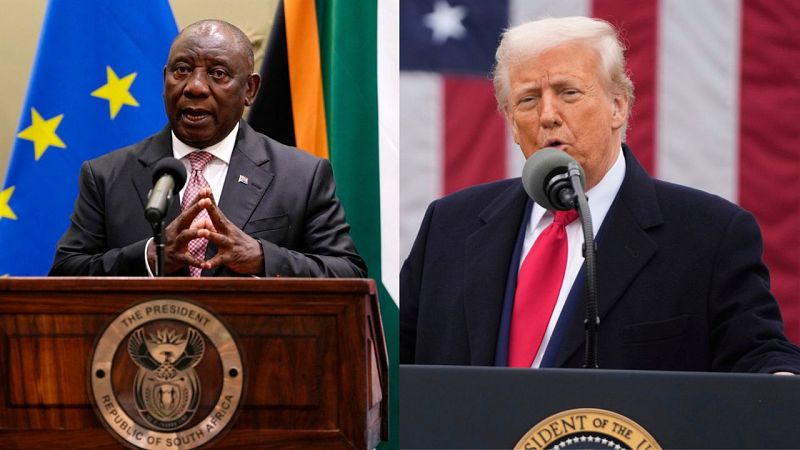South Africa’s diplomatic gamble: strategic defiance or risky isolation [Africanews Debates]

South Africa’s escalating tensions with the United States sparked intense debate on Africanews Debates on April 2, as experts analyzed whether Pretoria’s foreign policy signals a bold assertion of independence or a perilous move that could weaken its global standing.
Walking a Tightrope with Washington
Political risk analyst Menzi Ndhlovu described South Africa’s response to US pressure as a “mixed approach” part strategic, part reactive. He argued that Pretoria underestimated Washington’s shifting foreign policy stance, particularly under the Trump administration, leading to early diplomatic missteps. However, he noted that South Africa is recalibrating through back-channel diplomacy, private sector engagement, and controlled messaging to safeguard its economic interests.
Ndhlovu highlighted the stakes: 600 US companies operate in South Africa, and Washington remains a key trade and financial partner. Given the economic power imbalance, he advised Pretoria to adopt a “tactful and measured” approach rather than direct confrontation. He also pointed to misinformation surrounding South Africa’s land reform policies and Black Economic Empowerment (BEE) initiatives, suggesting that external narratives often distort the country’s political and economic realities.
Caught in a Global Power Struggle?
Political analyst Sanusha Naidu framed the diplomatic rift as part of a broader global power shift, arguing that Washington may be using South Africa as an example of what happens when a developing nation challenges Western influence. He pointed to tensions over BRICS, the G20, and Pretoria’s growing ties with China and Russia as flashpoints in a larger struggle for geopolitical dominance.
WATCH FULL DEBATE HERE ; South Africa’s Defiance: A Brave Stand or a Diplomatic Disaster?
Naidu criticized the “uneven and selective” nature of the international system, drawing parallels between South Africa’s racial transformation policies and ongoing equity struggles in the US. He noted US Secretary of State Antony Blinken’s criticism of South Africa’s G20 theme focused on sustainability and equality as a reflection of Washington’s discomfort with Pretoria’s global positioning.
He also questioned whether traditional economic models can truly address systemic inequality, describing South Africa’s ANC-DA coalition government as an “uneasy partnership” that may struggle to implement transformative policies.
Strategic Restraint or Missed Opportunity?
Dr. Philani Mthembu, executive director of The Institute for Global Dialogue, argued that South Africa’s diplomatic restraint is intentional, not a sign of weakness. Unlike Washington, which has been vocal in its criticisms, Pretoria has avoided escalating tensions, focusing instead on economic stability and long-term strategic positioning.
Mthembu noted that even Nelson Mandela had to navigate a delicate relationship with the US, prioritizing national interests over external pressures. He downplayed claims that Washington’s criticism amounts to a direct attack on South Africa, suggesting instead that the US is reassessing its global partnerships in an era of shifting alliances.
On the issue of misinformation, Mthembu dismissed Elon Musk’s claims of “white genocide” in South Africa as “deliberate disinformation” aimed at fueling division. He emphasized that the country remains committed to reconciliation and nation-building, urging a focus on constitutional values rather than sensationalist narratives.
What Lies Ahead?
As global power dynamics shift, South Africa faces a defining moment in its diplomatic strategy. Some see its foreign policy as a bold reassertion of African agency, while others warn that missteps could have long-term economic and geopolitical repercussions.
The lingering question: Is South Africa carving out a new, independent role in global diplomacy, or is it risking unnecessary isolation in an increasingly divided world?
Today

